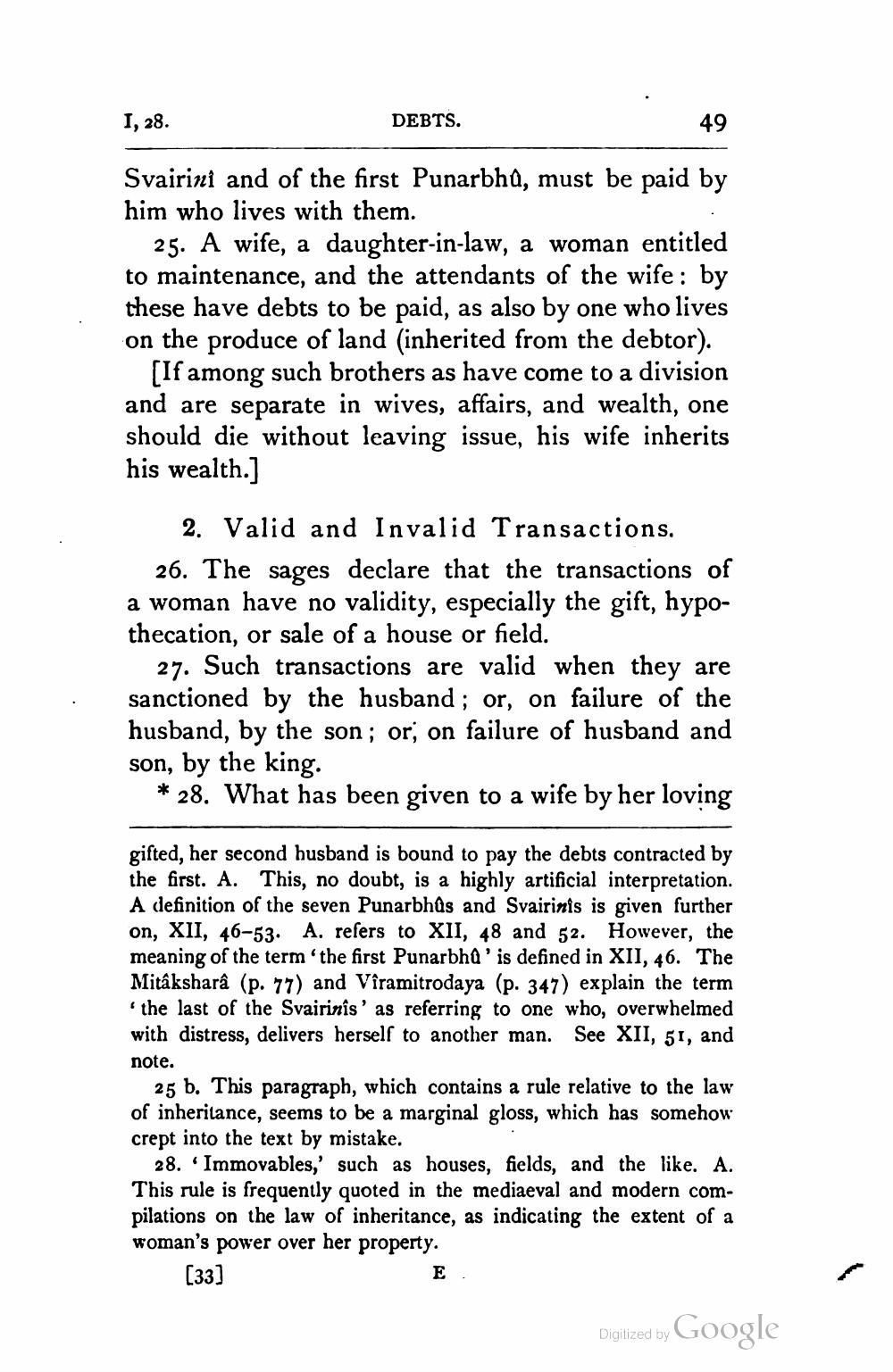________________
I, 28.
DEBTS.
49
Svairini and of the first Punarbha, must be paid by him who lives with them.
25. A wife, a daughter-in-law, a woman entitled to maintenance, and the attendants of the wife : by these have debts to be paid, as also by one who lives on the produce of land inherited from the debtor).
[If among such brothers as have come to a division and are separate in wives, affairs, and wealth, one should die without leaving issue, his wife inherits his wealth.]
2. Valid and Invalid Transactions. 26. The sages declare that the transactions of a woman have no validity, especially the gift, hypothecation, or sale of a house or field.
27. Such transactions are valid when they are sanctioned by the husband; or, on failure of the husband, by the son; or, on failure of husband and son, by the king.
* 28. What has been given to a wife by her loving
gifted, her second husband is bound to pay the debts contracted by the first. A. This, no doubt, is a highly artificial interpretation. A definition of the seven Punarbhûs and Svairinis is given further on, XII, 46-53. A. refers to XII, 48 and 52. However, the meaning of the term 'the first Punarbhû ' is defined in XII, 46. The Mitakshara (p. 77) and Vîramitrodaya (p. 347) explain the term 'the last of the Svairinîs' as referring to one who, overwhelmed with distress, delivers herself to another man. See XII, 51, and note.
25 b. This paragraph, which contains a rule relative to the law of inheritance, seems to be a marginal gloss, which has somehow crept into the text by mistake.
28. Immovables,' such as houses, fields, and the like. A This rule is frequently quoted in the mediaeval and modern compilations on the law of inheritance, as indicating the extent of a woman's power over her property. [33]
E .
Digitized by Google




